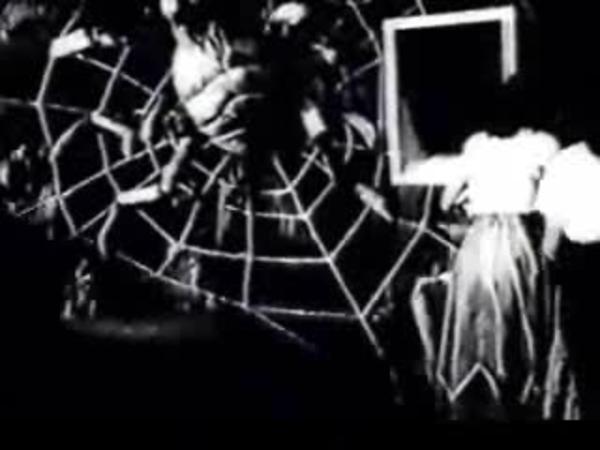Shab Neshini Dar Jahanam
aka A Party In Hell
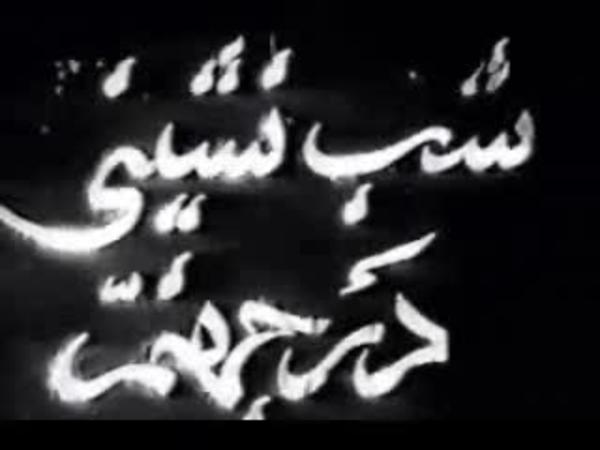
1958![]()
Written by Mehdi Maysaghieh
Directed by Samuel Khachikian and Mushegh Sarvarian
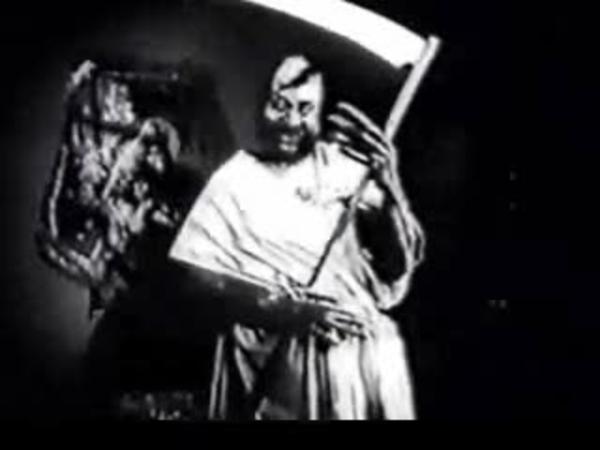
When you think Iranian cinema, what comes to mind for most people are art house movies that are considered critical masterpieces. Now, this may be true for most Iranian cinema exported post-revolution, but Iran has had a prolific and diverse cinema industry for over 100 years. Even the current crop of films produced for the domestic audience is completely different from the art house films (many of which are not even screened in Iran!) And like any thriving film community, excellent and influential directors will helm pictures that are now considered genre films. So we’re going to take a trip back to the 50s and 60s, when Iranian cinema was at one of its creative peaks. Around this time, the box office was beginning to fill up with thriller pictures that would become a fad before being replaced by melodramas as the next big thing. Western influences in storytelling and editing became more apparent, especially films directed by Samuel Khachikian, one of the directors of Shab Neshini Dar Jahanam (A Party in Hell).
The reason Shab Neshini Dar Jahanam gains our attention is the highly detailed and energetic fantasy sequence that makes up the last third of the film. Our hero wanders through Hell to learn important life lessons on not being a greedy jerk, and in doing so encounters wonderful sets, costumes, and historical figures. The wild underworld filled with angels, devils, tribesmen, dancers, Caesars, Hitler, Napoleon, Genghis Khan, snake ladies, giant monsters, a Satan Computer, and rock and roll, is a creative and entertaining feast. The use of movement and music flow together to create an energy that brings the film to life. Needless to say, I enjoyed A Party in Hell.
Two directors are credited in some database, others only list Samuel Khachikian. So let’s talk about him first. Khachikian was one of the most popular and influential directors in Iranian history. He was also a prolific writer and editor. Khachikian’s directing career started with 1953’s Return, and he went on to direct forty films. Many of his pictures would be classified as genre pictures, trending towards thriller and noir elements, with several featuring horror elements. His successful suspense pictures earned him the nickname “Iranian Hitchcock.”
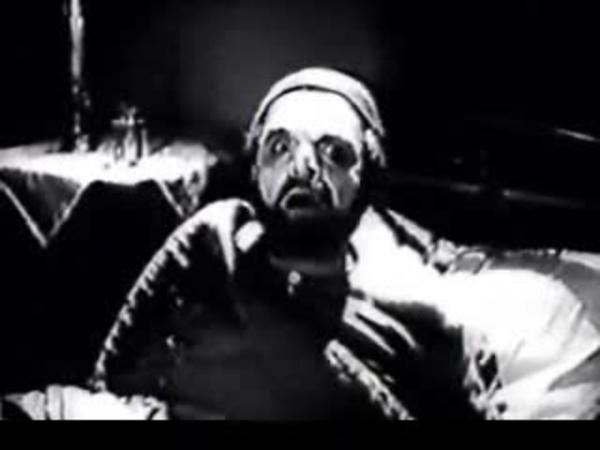
Some of his better known films are Khodahafez Tehran (Goodbye Tehran, 1966), Faryade nimeshab (The Midnight Terror, 1961), Delhoreh (Anxiety, 1962), and Chahar-rahe havades (The Crossroad of Events, 1955). Shab Neshini Dar Jahanam/A Party in Hell was entered into the 8th Berlin International Film Festival. Khachikian was Iranian-Armenian, and his original films were first shown within the community before expanded to all of Iran. Khachikian is also known for creating the first trailer for an Iranian film, his second feature, A Girl from Shiraz (1954).
Many of Khachikian’s films deal with class issues. His first film Return was a drama where a servant boy and the spoiled son from the family her works for compete over the affections of a young lady. He returned to the class themes with his third film, Crossroads of Incidents (1955), that also featured criminal scenes that got him praise. This continued into 1957’s A Storm in Our Town, a thriller that began his comparisons to Hitchcock. Khachikian would deny the influence, instead citing the stories from his father about the Armenian genocide as inspiration for the psychological thriller elements. Khachikian’s most well-known films were produced in the 60s, by the 1970s popular cinema had moved towards elements outside his comfort zone, leading to less distinctive work.
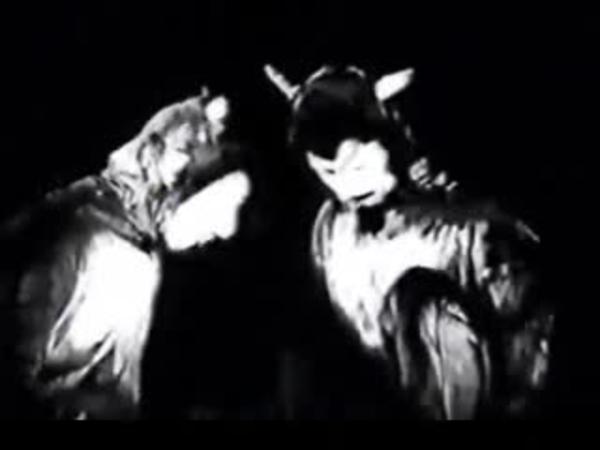
After the revolution, Khachikian’s output slowed considerably. 1985’s Eagles was one of the the first war films made by Iran, and was the highest grossing film up to that time. He wasn’t allowed to make another film until 1990’s Herald, a religious movie he made to placate Islamic cultural ministers (Khachikian was Christian.) Khachikian died in 2001, but his family legacy lives on through his son, director Edwin Khachikian, and his grandson, editor Ara H. Keshishian.
Mushegh Sarvarian was the original director, but for reasons I was unable to figure out, he left the production, causing the producers to scramble and hire on Khachikian. Sometimes known as Mushegh Soruri, the Iranian/Armenian director helmed a few other films, Mahtabe khoonin (aka The Bloody Moonlight, 1956), Haji Jabbar dar Paris (aka Mr. Jabbar in Paris, 1961), and Shahname akharesh khoshe (1966). I am pretty sure Haji Jabbar dar Paris is a loose sequel, with Ezzatollah Vosoogh reprising the role of Haji Jabbar. There isn’t that much information out there about Mushegh Sarvarian in English. If I were to guess, I would say Mushegh Sarvarian directed the more comedic elements of A Party in Hell and Samuel Khachikian directed the effects-laden portions.
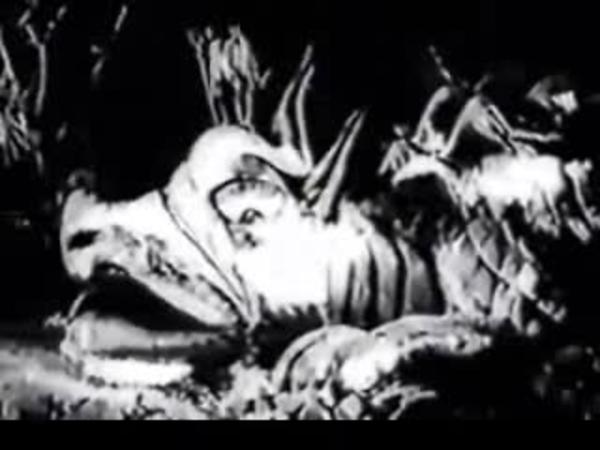
Aside from the actors I’ve identified, I’ve found the cast list containing Roomina, Parkhideh, Rahim Rohshanian, Hooshang Morahdi, Akbar Khajavi, Ebrahim Bahgheri, Mehdi Raisfirooz, Berenji, Sobhani, and Zarandi. I don’t know who is who, beyond suspecting Roomina is Parvin.
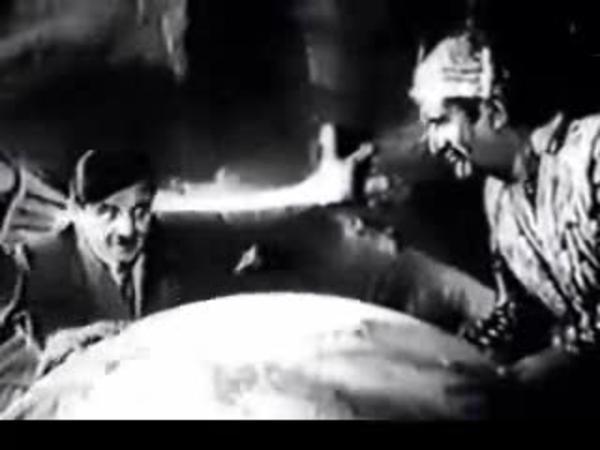
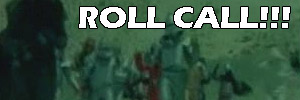
|


